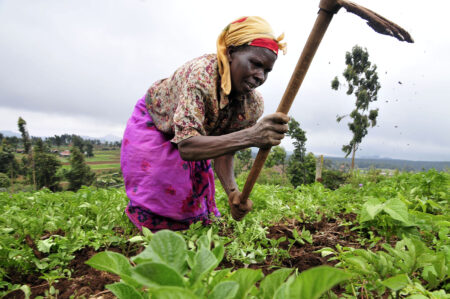Manufacturers from Kenya and Tanzania are set to hold three day talks starting today to deliberate on trade promotion and market access between the two countries.
According to Kenya Association of Manufacturers who will be co-hosting the event, Food and Beverage, Edible Oils, Chemicals, Automotive, Leather and Footwear sectors are some of the manufacturing sectors that shall participate in the trade mission.
The event is also being hosted by Confederation of Tanzania Industries (CTI).
Leading the Kenyan delegation, KAM Chairman Mucai Kunyiha noted that addressing pertinent issues between Kenya and Tanzania will not only enhance trade between the two nations but also drive the competitiveness of products and services from both countries
He added that the two countries have the capability and capacity to add value to the wide array of resources that both countries have for export markets.
He however said that achieving this is hindered every time the business community encounters impediments to trade, consequently, impacting on the benefits of trade to the entire region
“Her Excellency, the President of the United Republic of Tanzania, Samia Suluhu Hassan recently visited Kenya. Her gesture of collaboration stands as a great example of reinvigorating relations, between Kenya and Tanzania,” explained Kunyiha.
CTI Chairman Paul Makanza has urged delegates from Kenya and Tanzania to uphold a rule-based trade relationship as a way to reduce the imposition on Non-Tariff Barriers (NTBs) on cross border trade.
He urged both Business Membership Organizations (BMOs) to fast-track the comprehensive review of the East African Community Common External Tariff (EAC CET) as its implementation will be critical in the promotion of domestic capacities and enhancing competitiveness of the manufacturing sector in the region.
Makanza said that they would continue to collaboration with their Kenyan counterparts and called for similar engagements with other BMOs in the region.
Among the trade issues that KAM hopes to be addressed include the upper band rate of the East African Community Common External Tariff (EAC CET); harmonization of domestic taxes; harmonization of product standards; review of the EAC Rules of Origin; and activation of the Dispute settlement mechanism.
“We recognize that trade devoid of both tariff and non-tariff barriers increases prosperity for all participating nations by allowing consumers to buy more, better-quality products at lower costs. Additionally, it drives economic growth, enhances efficiency and increases innovation,” added Kunyiha.

The Trade Mission also comprises of Business-to-Business (B2B) sessions between Kenyan and Tanzanian manufacturers. This is geared towards identifying export and import products, investment opportunities, and benchmark and learn on best business practices in the two markets.
Government representatives expected to include representatives from Kenya High Commission in Tanzania, and Kenya and Tanzania Ministries for industry and Trade.
The Trade Mission is a follow-up to Presidential commitments made by President Uhuru Kenyatta and President Samia Suluhu Hassan and the just concluded bilateral negotiations on trade between the two States.
During the talks which were held in May, the two countries agreed to eliminate barriers hindering the smooth flow of trade and people between the two East African nations.
Tanzania Head of State Samia Suluhu Hassan said, “we have agreed that our Health Ministers need to sit down and come up with a structured system of testing our people at the border points to allow easy movement of our people so as to do their businesses.”
During their meeting, the two leaders noted that Kenya and Tanzania need to develop modalities including for mutual recognition of COVID-19 test results, noting that the lack of harmonized protocols has hampered free flow of goods and people.
Speaking on the same, Kenya’s President Uhuru Kenyatta noted that trade between Kenya and Tanzania has been facing some administrative challenges.
According to Kenyatta, these include non-tariff barriers and other restrictions which are frustrating trade and investment between the two countries.











